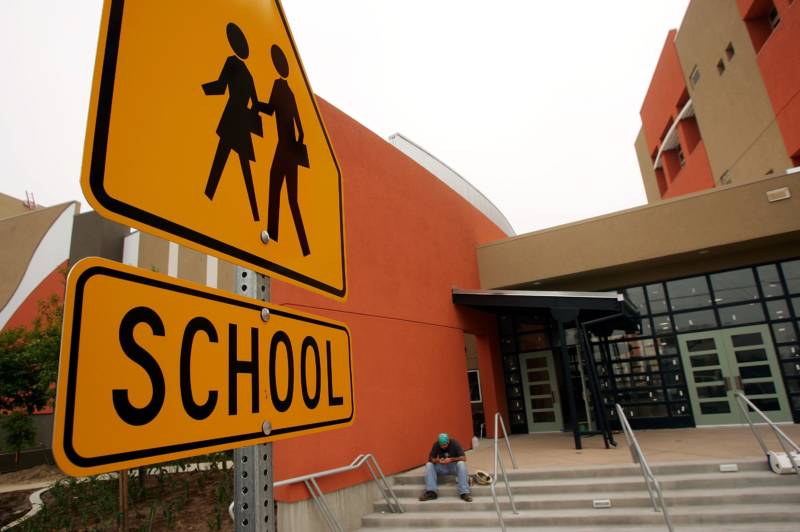The ACLU of Southern California says that dozens of schools have since contacted the organization and corrected those violations. You can see a list of those schools here.
On Aug. 11, 2016, KQED's Devin Katayama spoke with Rick Ayers, education professor at the University of San Francisco, about the report and calls for a charter moratorium by the NAACP and The Movement for Black Lives.
Katayama: The NAACP has been critical of charters for the past several years. Does The Movement for Black Lives joining this conversation change anything?
Ayers: I think it does, because I think Black Lives Matter is a movement and an expression of the most current, on-the-ground protest and civil rights and human rights developments. And I think that a lot of the activists here are very close to the ground. They're in communities. Many of them are teachers. So I think they read it much more closely than policy makers in Sacramento or Washington.
Katayama: About a quarter of Oakland's public school students are in charter schools. Do you expect this report by the ACLU or these resolutions to slow the momentum for charter school growth in school districts like Oakland?
Ayers: There's sort of a political pendulum that swings back and forth, and it's not going to flip things around right away. There's a heck of a lot of money that goes into supporting this narrative about charters. And it's almost a faith-based argument at this point -- just sort of belief -- that the market must be better than bureaucrats to figure out what to do. But there's a lot of money, and I know the superintendent in Oakland is out of the Broad Foundation, which trains superintendents who believe in this [charter school] direction. But many districts, including San Francisco Unified School District, have been skeptical and have questions and I think we're seeing the beginning of that pendulum swinging back.
Katayama What else do you think would need to happen to improve the consistency and equality of charter schools?
Ayers: I think what we need is more transparency. It was certainly a good idea to get away from the 300-page educational code and all the encumbrances of these rules that made making any changes in schools seem difficult. But with any deregulation, like when we saw the pipeline blow up in the Bay Area, you realize, oh, we do need some controls. We do need regulation. So I think there could be a lot of steps taken even within charters. And I know some great charters and very good teachers and community people in charters -- but in charters there could be more oversight on curriculum on admissions so the students aren't being turned away with special ed needs or language needs. Also that in all schools -- everyone who is close to students and close to communities knows that -- we have to have a better way of assessing students.
